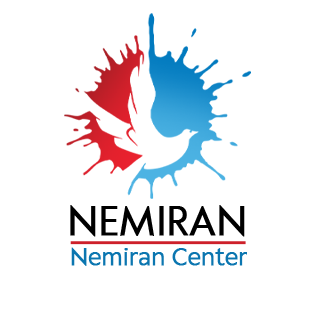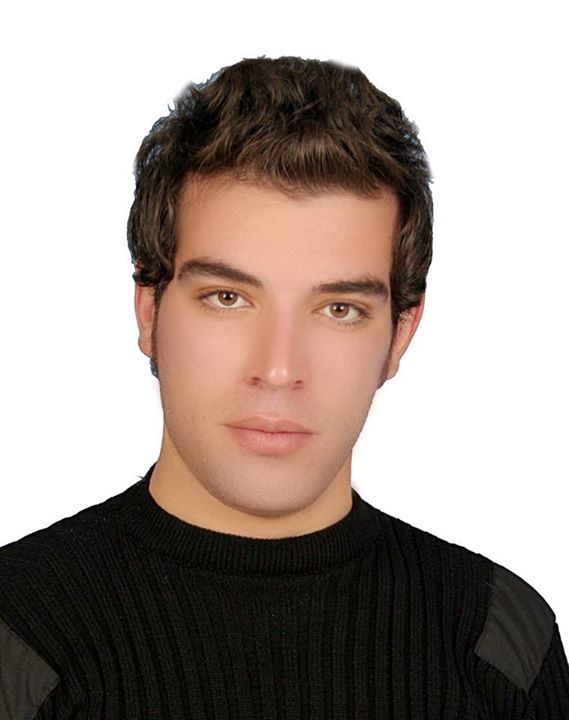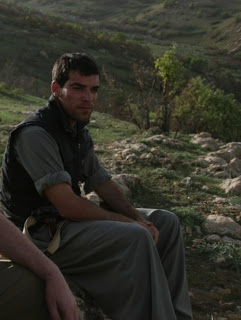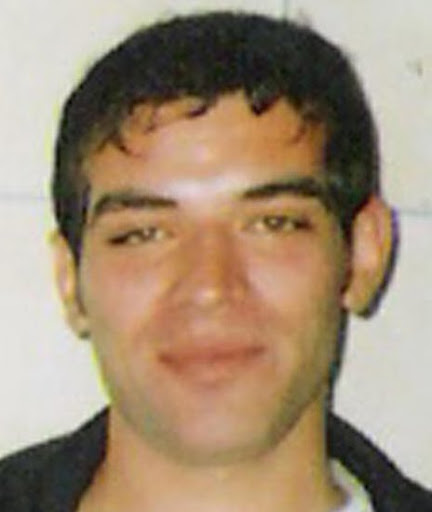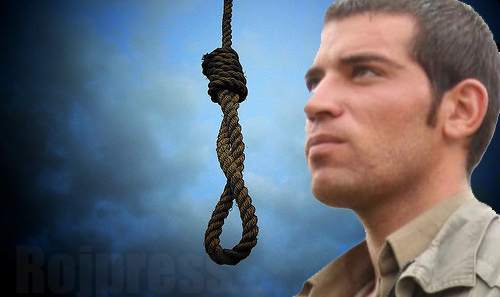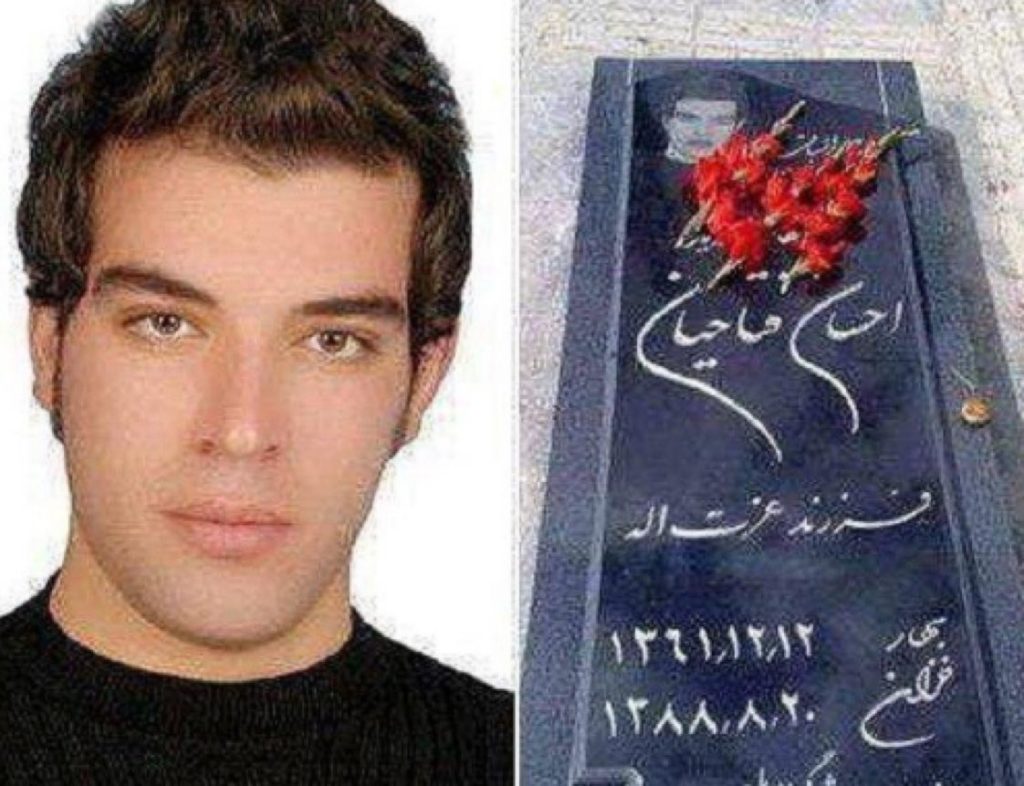Ehsan Fattahian, son of Ezatullah, and was born on 12.12.1361 Iranian Calendar (03.03.1983) in Kermanshah. He was arrested on charges of membership in a Kurdish political party and hanged by the executioners of the Islamic Republic of Iran in the central prison of Sanandaj, on 20.08.1388 Iranian Calendar (11.11.2009) at 6:00 am. The jurisdictional process of that case is an example of the cases of all freedom and equality fighters, already written in the death squads and ready to be executed.
A few days before he was hanged, Ehsan Fattahian, wrote in a public letter about the sufferings that shake the conscience of every free human being. We believe that no one can write better than Ehsan about the sufferings that were inflicted on him in the torture chambers of the Islamic Republic of Iran. On the eleventh anniversary of his execution on the path to freedom and equality, we review his suffering and cherish his memory.
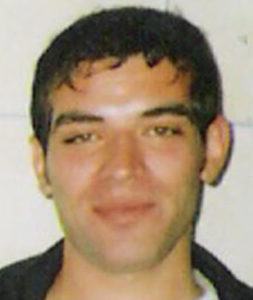
…..I have never been afraid of death, even now that I feel it next to me in the closest space and the most intimate time. I smell it and realize it, because it is a long-standing acquaintance with this nation and land…….
I came to the world in the city of Kermanshah. Its greatness is on lips of my compatriots and it has been the cradle of my homeland civilization. My mind wandered to understand discrimination and injustice. I realized it from the depths of my soul that was an expression of oppression……But it is a pity that they had blocked the space and had suppressed the demand for justice. I did not find a way inside. I moved beyond artificial boundaries to another place: “I became Komala Peshmerga”. The longing to find myself and my identity I have been deprived pushed me to that path. Getting away from home as a child was painful and difficult, but it never cut me off from my hometown. I was going home once in a while to meet it again and to refresh my memories. Once, “they” made the meeting bitter. They arrested me and threw me in a cage. From the very beginning, with the humanitarian reception!!! of my captors, I realized that the same tragic and sad fate awaits the companions and followers of this path: torture, prosecution, heavily influenced court, a completely unjust and political verdict, and finally death ……
Let me be more familiar: After being arrested in Kamyaran on 29/4/1387 (19.07.2008) and after being a guest!!!! in the intelligence office of that city for a few hours, I had the thick bracelet and blindfold which made impossible for me to move and see around. A person who introduced himself as the deputy prosecutor started asking a series of irrelevant questions and full of false accusations (It should be noted that any judicial interrogation in an environment other than the prosecutor’s office and the court is strictly prohibited by law). Thus, the first round of my many interrogations came to an end. That night, I was transferred to the Kurdistan Province Intelligence Office in Sanandaj. They experienced the real banquet there: dirty cell with an unpleasant toilet and blankets that have probably not been washed and cleaned for decades. From then on, the lower corridor and the interrogation rooms, with a barrage of beatings and excruciating torture, became an endless, three-month sequence day and night. The interrogators made strange accusations during these three months in order to improve their professional status and in the pursuit of a few insignificant and worthless things. They believed in their lying better than anyone else. They tried to prove the accusation with various methods that I had taken part in an armed operation.

But the only provable points were membership in Komala and propaganda against the regime….The First Branch of the Islamic Revolutionary court of Sanandaj sentenced me to 10 years in prison in exile. Iran’s administrative and political structure has always been plagued by centralism. But in my case they apparently intended to decentralize the judiciary. Recently, the authority and jurisdiction to appeal the verdicts of political defendants at the highest level – even execution – has been taken from the Supreme Court and handed over to the provincial courts of appeal. After the objection of the Kamyaran prosecutor to the initial sentence and finally to the surprise and contrary to the case law and domestic law of Iran, the Fourth Branch of the Court of Appeal of Kurdistan Province turned the sentence of 10 years imprisonment into death. Pursuant to Article 258 of the Code of Criminal Procedure, courts of appeal are only allowed to aggravate a preliminary sentence if the sentence is less than the minimum sentence prescribed by law. According to the prosecutor’s request, the accusation of Moharebeh (enmity with God) is at least one year imprisonment in this case. Comparing the 10-year imprisonment in exile and even a death sentence with this minimum sentence proves this judgment illegal and politically motivated.
I was transferred from Sanandaj Central Prison to the Intelligence Department Detention Center again shortly before the sentence was changed. There, I was asked to confess in a video interview issues I had never done, and to use words and sentences that refuted my belief. Despite intense pressure, I refused to accept their illegitimate request. They explicitly said they would commute my sentence to death. They soon kept their threat and proved the court’s submission to security and non-judicial authorities. So can man criticize them?
The judge has sworn to remain impartial everywhere, at any time and in relation to any person or subject, and to view the world only through law and order. Can Amin, judge of this retrograde land claim that he has not broken his oath and has remained neutral and fair? In my opinion, judges like that do not even reach the number of fingers on one hand. When the entire Iranian judicial system executes arrest, trial, imprisonment, and death at the behest of an ignorant and illiterate interrogator, can a judge in an oppressed and discriminated province be criticized? Yes, the fundaments of the house are in ruins….

Now, in my last meeting inside the prison with the prosecutor who issued the imprisonment sentence, he acknowledged that the execution of the death sentence is illegal. But they intend to execute that anyway. Needless to say, such insistence on enforcing the death sentence in any way is the result of pressure from security and political circles outside the judiciary. The members of these circles view the issue of death and life of a political prisoner only from the angle of recompense and political intentions. For them, no “problem” can be imagined beyond their illegitimate goals, even if it is the first inherent human right, the right to live. They not only ignore global and international agreements but also consider their domestic laws and requirements as absurd thing.
But the last word: it is an absurd imagination if the tyrants and rulers think that my death will eliminate the issue called Kurdistan. Neither my death nor the death of thousands like me will be an ointment for this incurable pain. It will worsen the whole thing. Undoubtedly, “every death is a sign of another life.”
Ehsan Fattahian
Sanandaj Central Prison
17.08.1388 (08.11.2009)
Some memorial photos of Ehsan Fattahian
